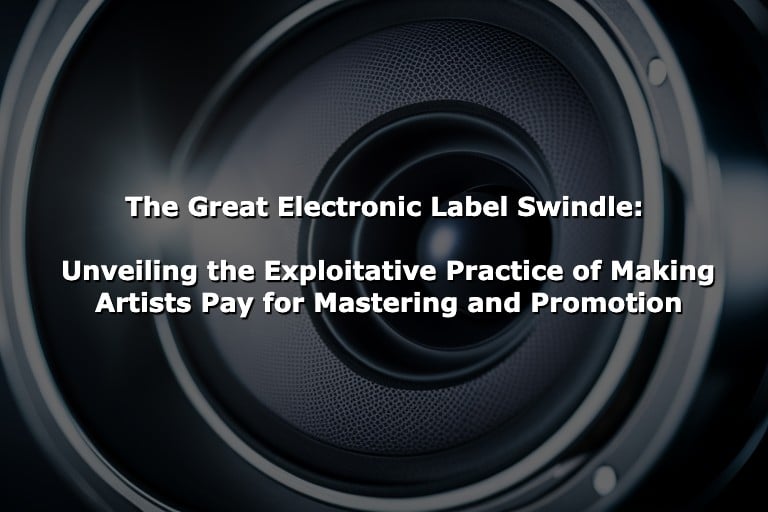Unveiling the Exploitative Practice of Making Artists Pay for Mastering and Promotion
In the ever-evolving landscape of the music industry, artists strive to find their place, share their passion, and showcase their talents. Record labels have traditionally played a crucial role in this process, offering artists a platform to reach a wider audience, invest in their music, and promote their work. However, recent developments have raised concerns about the fairness of some label practices, particularly the trend of making artists pay for mastering and promotion. This article delves into “The Great Electronic Label Swindle” and explores why this practice is not acceptable.
For years, the electronic music community has been a hub of creativity and innovation, welcoming a diverse range of genres and artists. In this vibrant ecosystem, aspiring musicians seek recognition and opportunities to share their creations. Many look to record labels as a potential avenue to amplify their presence and reach a broader audience. However, an alarming trend has emerged within some segments of the industry, where artists are required to shoulder the financial burden of mastering and promotion.
This practice can take various forms, from artists paying the bill for mastering services to being responsible for all promotional expenses, and even surrendering a portion of their booking income to the label, often totalling a staggering 15%. What’s most concerning about this trend is that these expenses are deducted from the artists’ income, while the label continues to claim 100% of the revenue generated by their music.
This raises a fundamental question: Is this a trend that artists should support, or is it an exploitative money-making scheme that takes advantage of aspiring talents who may not fully understand the intricacies of the music industry?
It’s crucial to recognize that legitimate record labels should not require artists to finance their own releases. In fact, in the industry, reputable labels do not demand such payments from their artists. They understand that the label’s role includes investing in the music they believe in, supporting the artists they sign, and helping them succeed.
In a fair arrangement, labels should cover the costs associated with mastering and promotion, especially if they intend to claim a significant portion of the revenue generated by the artist’s work. In most cases, the only expenses that should be borne by the artist are the costs incurred for the production of their music.
It’s essential for artists to realize their worth and the value of their creative contributions. In a partnership with a reputable label, artists should expect to receive a fair share of the income once all expenses have been covered. This not only provides artists with the recognition they deserve but also ensures they are not burdened with excessive costs that can hinder their artistic journey.
In conclusion, “The Great Electronic Label Swindle” shines a spotlight on an alarming practice within the music industry where artists are unfairly made to pay for mastering and promotion while record labels profit without bearing any financial responsibility. As an artist, it’s crucial to recognise your worth and choose partners who value your talent and are willing to invest in your success. By supporting fair and ethical practices, we can create a more equitable and sustainable future for the music industry, where artists are celebrated for their artistry rather than exploited for their finances.




